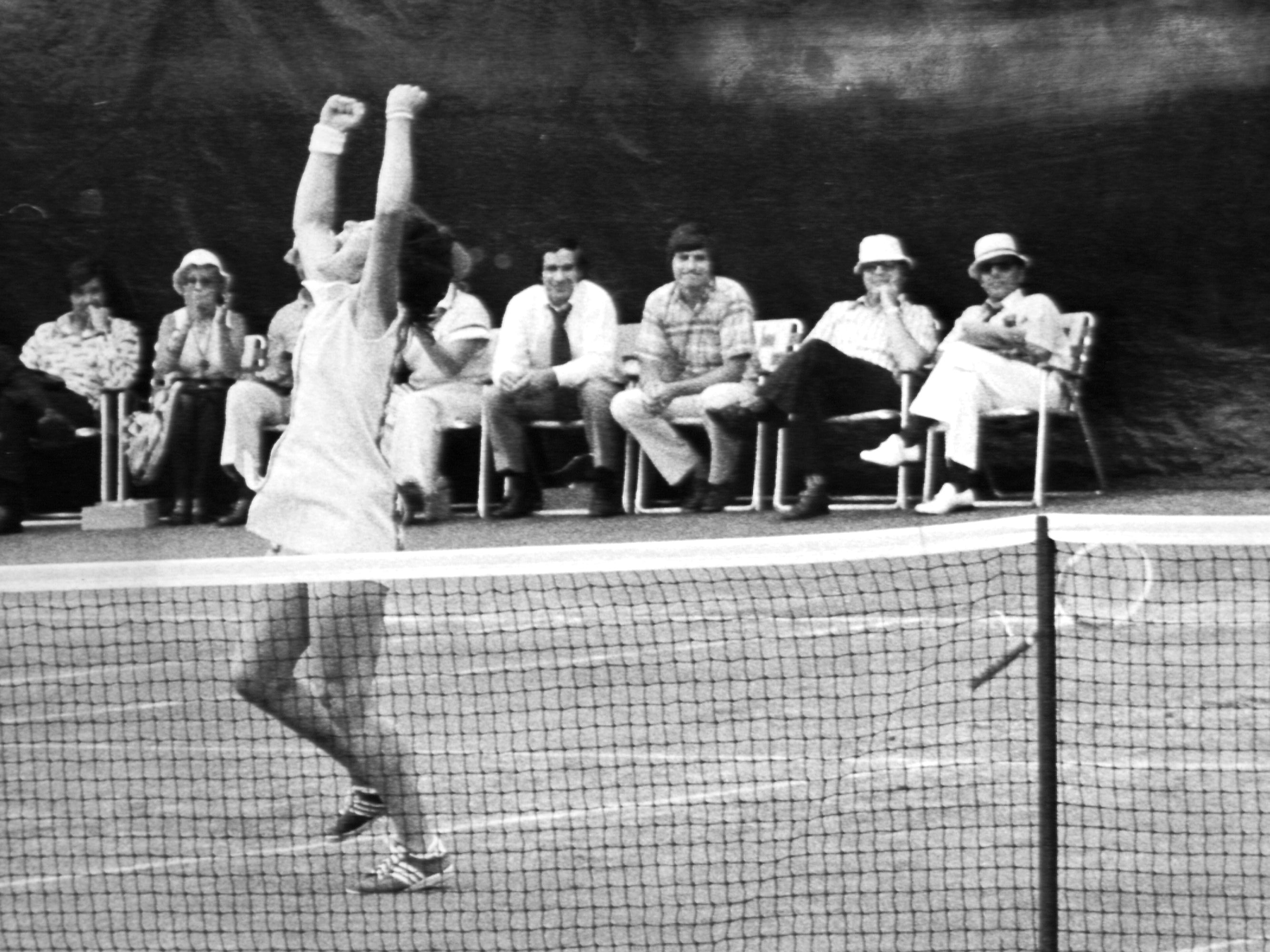The Story of Billie Jean King vs Bobby Riggs

The Match That Changed More Than the Scoreboard
“Be bold. If you’re going to make an error, make a doozy, and don’t be afraid to hit the ball.” – Billie Jean King
In 1973, the world tuned in for a tennis match that became a cultural reckoning. When Billie Jean King faced Bobby Riggs in the famous Battle of the Sexes, she fought for more than personal honor—she fought for a seat at the table for all women. King had been championing women’s equality since she was young, and this match put that struggle on a national stage.

The Player and the Provocateur
Bobby Riggs was a former world No. 1 who turned himself into a sideshow. By the 1970s, he was loud, brash, and on a mission to “prove” that women’s tennis didn’t measure up. After beating Margaret Court earlier that year, he doubled down on his challenge.
Billie Jean King didn’t flinch. She had already won multiple Grand Slams, become the first woman in tennis to earn six figures in prize money, and been named Time’s Sportsperson of the Year in 1972. She had built the women’s pro tour and spent her career demanding equity. This wasn’t just a match—it was a defining moment. It was a spectacle with stakes.
As King later said, “I thought it would set us back fifty years if I didn’t win that match.”
The scene at the Houston Astrodome was unforgettable. Riggs wore a candy-colored warmup jacket sponsored by Sugar Daddy, while King made a grand entrance on a gold litter. But once the match began, Billie got serious. She controlled the match with deep rallies, wore Riggs down, and won in straight sets: 6–4, 6–3, 6–3. To the women watching, it was a victory heard around the world.
A Victory That Still Echoes
The Battle of the Sexes pushed the conversation forward. Billie Jean King became a global symbol for gender equity. That same year, the U.S. Open became the first Grand Slam tournament to offer equal prize money for men and women. She helped launch the Women’s Tennis Association and the Women’s Sports Foundation, building the infrastructure for athletes to rise.
King holds 39 Grand Slam titles: 12 in singles, 16 in doubles, 11 in mixed. But her most powerful legacy has always been off the court.
Today, Billie Jean King remains a driving force for justice. Her leadership continues through the Billie Jean King Leadership Initiative, helping create more equitable workplaces and ensuring representation reflects the real world. HOMAGE is proud to support that mission.
Because champions don’t stop at winning. They keep playing until the system changes.












